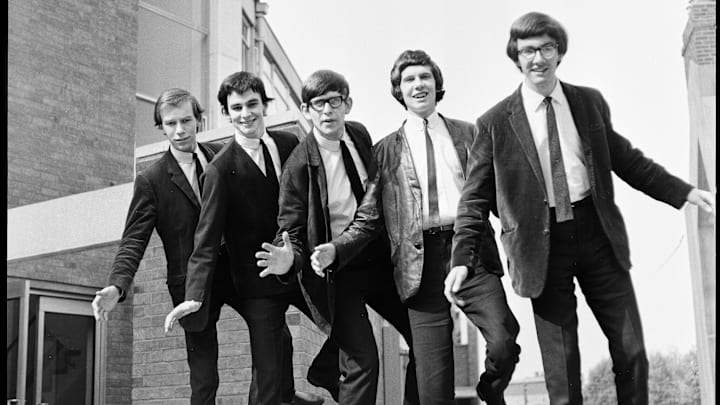APRIL
“Viva Las Vegas” by Elvis Presley
Elvis was still enormous by 1964, but his star was fading just a bit. He had well over a dozen chart-toppers in the late ‘50s but didn’t have any number-one hits between 1963 and 1968. He was making mostly bad movies and cranking out mediocre singles in accompaniment. “Viva Las Vegas,” both the film and the song, was an exception.
He acted on screen with Ann-Margret, and he got a killer Doc Pomus song to sing. “Bright light city gonna set my – Gonna set my soul on fire – Got a whole lotta money that’s ready to burn – so get those stakes up higher.” It captured the Vegas of 1964, and it’s still doing it sixty years later.
“Walk on By” by Dionne Warwick
Warwick’s third album was also her third collaboration with the writing/producing team of Burt Bacharach and Hal David. By this point, the combo was hitting on all cylinders. The composers wrote nine of the twelve songs on Make Way for Dionne Warwick, including gems like “You’ll Never Get to Heaven if You Break My Heart” and “Wishin’ and Hopin’.” “Walk on By” showed off the tricky syncopated rhythms and soaring melodies that Bachrach loved.
Warwick made it all seem so effortless and timeless. It was a far cry from the raw energy of the Beatles or Stones, but even with its strings and brass, it was not the least bit old. Dusty Springfield would give “Wishin’ and Hopin’” a little bit of the toughness that elevated that song, but on the delicately cool “Walk on By” no one was going to improve on Dionne.
“She Lied” by the Rockin’ Ramrods
The Dave Clark Five released “Glad All Over” in 1963. Local Boston legends the Rockin’ Ramrods took that song, flipped the script, and scuffed it up. The result was “She Lied,” or you might think of it as “Mad All Over,” which is I how usually remember it. It’s a bare-bones rager about getting jilted and you can hear punk rock being conceived. As the Stones had done, The Ramrods also took a turn with McCartney’s “I Wanna Be Your Man” around the same time.
“Mississippi Goddamn” by Nina Simone
Nina Simone released a live album in 1964 derived from a series of Carnegie Hall performances. She introduced one of her newest compositions by saying “The name of this tune is “Mississippi Goddam” and I mean every word of it.” Later she would inform listeners “This is a show tune – but the show hasn’t been written for it yet.”
Nina Simone was writing history in Carnegie Hall. It is one of the seminal protest songs from the Civil Rights movement. Backed by her insistent piano and a simple arrangement with drums and a background chorus, she runs through a litany of sins and makes a simple plea for justice. It is equally angry and hypnotic. It is both a great song and a crucial song.
Continued on next slide
